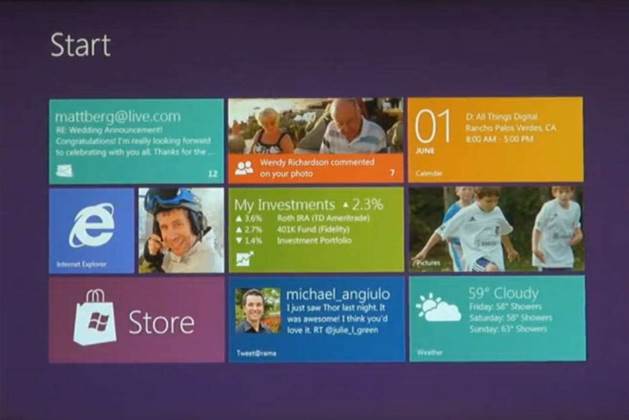The impending launch of Microsoft’s Windows 8 operating system has polarised IT managers, with some strongly in favour of the new tablet-friendly design, and some firmly against.

Microsoft went public with aspects of the new Windows 8 user interface in June last year. The operating system has been tested by three million people ahead of its retail launch next month.
"While Windows 8 represents the most innovative interface we've seen from Redmond in decades, that innovation does not necessarily translate into tangible benefits for enterprise users," IBRS analyst Joe Sweeney said.
In a preliminary survey of 90 Australian businesses, Sweeney found some IT managers unimpressed by what they saw as consumer-focused features.
One IT manager expected users to be most attracted to Windows 8’s social features and app store but planned to disable or restrict the features from the corporate network.
“Windows 8 is, by Microsoft's own admission, not intended to replace Windows 7 in the enterprise,” another survey respondent said.
“It's an operating system refresh aimed purely at retail consumers and intended to complement the release of new Microsoft 'branded' consumer hardware.”
Windows 8 supporters argued that it would enable new device form factors that would do away with heavy, slow and battery-poor enterprise laptops, while avoiding the “Android quagmire”.
One enterprise that had already upgraded a few users from Windows 7 to Windows 8 said users needed “a bit of time to get used to the concepts of Windows 8, but accept it well”.
Others applauded its inclusion of live updates and a mobile, touch interface, which could facilitate bring-your-own computing.
Upgrading from XP or Windows 7
Just under half of the Australian organisations surveyed so far were either still planning their migration from Windows XP or had only recently moved to Windows 7.
“The common reason stated for not being keen to adopt Windows 8 is the recent adoption of Windows 7,” Sweeney said, noting that three- to four-year technology refresh cycles meant that some organisations would be more likely to adopt Windows 9.
One respondent said Windows 8 added “no value to the corporate desktop in terms of capability or productivity”, when compared with Windows 7.
Those on XP were more likely to adopt Windows 8; one desktop services manager planned to stick with Windows XP for up to 12 months, while waiting for Windows 8 to mature.
IBRS has invited iTnews readers to participate in the seven-minute-long survey to receive a full copy of the report.


.png&h=140&w=231&c=1&s=0)
_(36).jpg&h=140&w=231&c=1&s=0)
_(20).jpg&h=140&w=231&c=1&s=0)






 iTnews Executive Retreat - Security Leaders Edition
iTnews Executive Retreat - Security Leaders Edition
 iTnews Cloud Covered Breakfast Summit
iTnews Cloud Covered Breakfast Summit
 Melbourne Cloud & Datacenter Convention 2026
Melbourne Cloud & Datacenter Convention 2026
 The 2026 iAwards
The 2026 iAwards












_(1).jpg&h=140&w=231&c=1&s=0)



